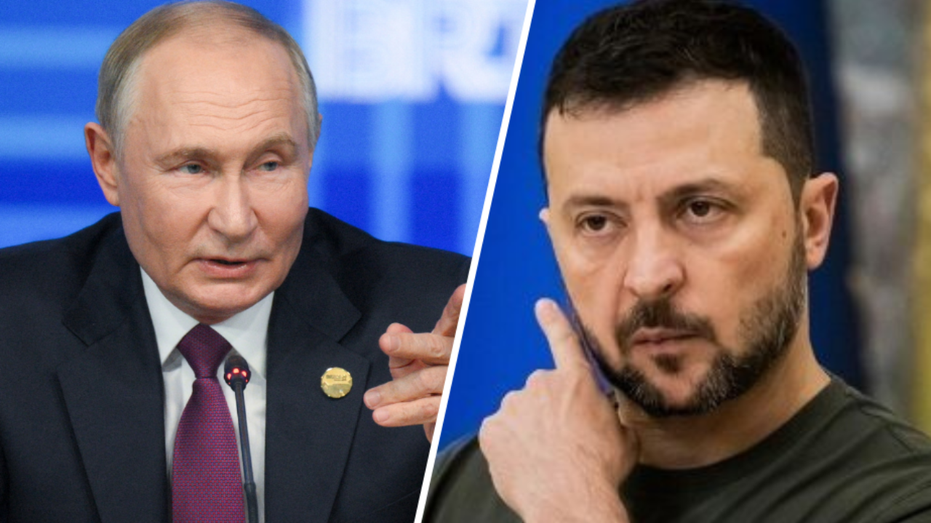Ukraine-Russia Peace Talks Fail to Secure Ceasefire; Zelenskyy Warns Putin Should Not Be 'Rewarded'
Ukraine scrutinizes Russia's ceasefire proposals as Zelenskyy vows no rewards for Putin and underscores NATO's vital role in countering Russian aggression.

The second round of peace talks between Ukraine and Russia in Istanbul ended on Monday without a breakthrough, as both sides failed to reach an agreement on an immediate ceasefire. Ukrainian President Volodymyr Zelenskyy reiterated his insistence that Russian President Vladimir Putin must not gain anything from his military campaign, warning that any concessions would only fuel further aggression.
Despite the Russian delegation presenting what they described as a memorandum of terms, Moscow once again declined to endorse an unconditional ceasefire—a step Kyiv has already agreed to and which has been backed by the United States. The talks appeared brief, reportedly lasting less than three hours and possibly under one hour, underscoring the deep divisions and lack of progress between the two parties.
Ukrainian Defense Minister Rustem Umerov, who led his country’s delegation, confirmed that Russia refused not only to negotiate a ceasefire on Ukraine’s terms, but also declined a proposed direct meeting between Presidents Zelenskyy and Putin. The two leaders have yet to meet face-to-face since the full-scale invasion began, despite repeated calls by Kyiv for high-level diplomacy.
One tangible development from the talks was an agreement for a 6,000-for-6,000 prisoner exchange. This deal aims to secure the release of sick and seriously injured individuals, as well as prisoners under the age of 25. However, crucial humanitarian issues remain unresolved. Ukrainian officials handed over a list of hundreds of children allegedly deported and relocated by Russian authorities from occupied territories. There is still no clear indication whether Moscow will return these children, many of whom have reportedly been placed with Russian families.
"The key to lasting peace is clear – the aggressor must not receive any reward for war. Putin must get nothing that would justify his aggression," emphasized Zelenskyy after the summit. He cautioned that rewarding Russia would undermine global security by sending a message that war pays off.
The peace talks followed a dramatic escalation over the weekend, when a Ukrainian drone strike—dubbed "Operation Spiderweb"—targeted a key Russian military complex. According to Zelenskyy, this operation destroyed about one-third of Russia's cruise missile carriers, dealing what he characterized as a "serious weakening" of Moscow's military capabilities. "It showed what modern war really looks like and why it’s so important to stay ahead with technology," he said.
While Zelenskyy did not elaborate further on the specifics of the negotiations, Ukrainian officials confirmed they have been given one week to review the latest Russian proposals for a ceasefire. Reportedly, Ukraine's conditions involve a 30-day halt to hostilities on land, air, and sea, before entering new rounds of negotiations alongside international partners including the United States and European allies.
These terms would see talks begin from the current front lines and include Ukraine’s demands for no future restrictions on its military, reparations for war damages, and rejection of Russian sovereignty over annexed territories. Additionally, Kyiv insists on maintaining its right to pursue NATO membership, a core point of contention with Moscow.
Zelenskyy again dismissed any suggestion that Putin should determine who can join NATO, stating, "If Putin is allowed to decide who joins NATO, where NATO infrastructure can or can’t be, then Russia’s appetite for war will only grow. Our shared goal is the opposite – to completely end Russia’s hunger for aggression."
He concluded with a call for unity among Ukraine’s allies: "Strong decisions are needed. Decisions for Europe, not for Putin. We all need to work together to make this really happen. And it’s doable."
No date has been set for the next round of talks between Ukraine and Russia, leaving the future of diplomatic efforts—and hopes for a lasting ceasefire—in question.




